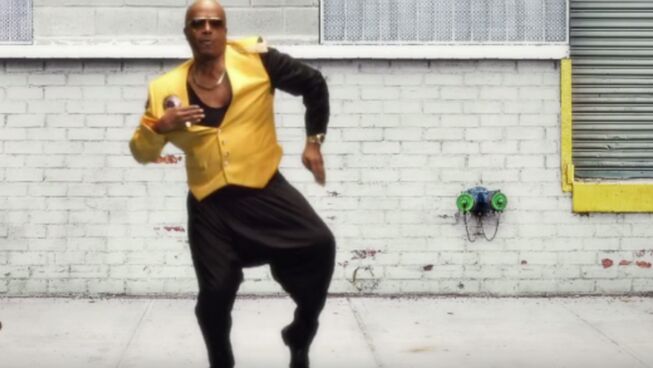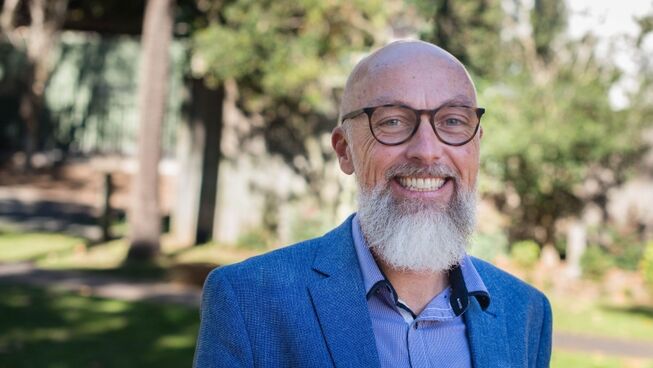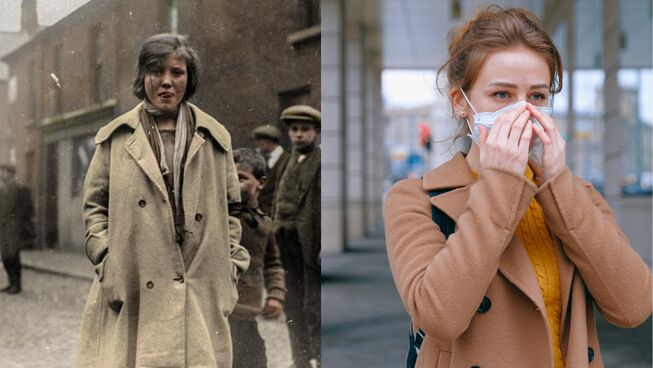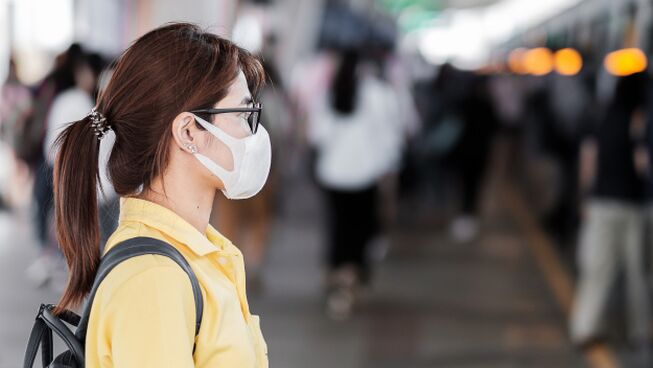
U can’t touch this!
Duh duh duh duh duh duh, duh duh duh duh duh
Duh duh duh duh duh duh duh duh duh duh duh
U can’t touch this!
Duh duh….
Okay we get it! We can’t touch this! Or that. Or anything.
Rapper MC Hammer’s 1990 hit U Can’t Touch This was prophetic eh? Who would have thought some thirty years later that Hammer (real name, Stanley Kirk Burrell, and now an ordained Christian minister) would have seen all of this coming?
All jokes aside, in a culture in which loneliness and anxiety are two of the prevailing features, yet a culture in which we are constantly brushing up against someone on the train to work while glued to our iPhones, the idea of not touching others for fear of contracting or spreading a disease seems so, well so 1520 not 2020.
It’s as if someone or Someone was laughing and saying “2020 Vision? I’ll show you what clarity looks like!”
Still it seems that people do not learn. Or don’t want to obey. Or think that enough money, influence, education or self-confidence in their individual identity means that they will be okay. Means that they can crowd the famous Bondi Beach in Sydney on the weekend the government requests us to maintain as much physical distance as possible. Means that somehow they are untouchable! Because that’s what power and influence and money make you think. Nobody can touch me. Nothing can touch me.
In India, the lowest of the (outlawed but entrenched) caste system are the untouchables. Here in Australia - and indeed the rest of the West - those who have all of the rewards of modern society think that they are the untouchables.
How dare the police tell me that we can’t go to the beach for the day? I live in this suburb! I worked hard to be an untouchable in a well-heeled area of one of the best cities in the world! I slave away in an office or a studio in the CBD to create the kind of island lifestyle where I get to touch what I want, but in which nobody can touch me, unless I pay them to.
Perhaps that’s harsh. But how else to explain the teeming masses on Bondi Beach? Perhaps, to put a better light on it, people just want to be with other people and normalise things. But going about our business is yesterday’s business. Today’s business is humbling ourselves and obeying the laws of the land even if we do not like them. They are for our own good.
In a great coincidence I am reading a book on touch, called Handle With Care by Lore Ferguson Wilbert. Lore has spent a lot of time thinking about touch. And she has spent a lot of time being touched. In loving ways, as one of eight siblings. And in terrible ways - she was sexually abused as a child. And she believes that we don’t really know what to do with touch.
We either under-touch - and keep our distance from those around us. Or we over-touch, in both awkward and abusive ways. And boy are we confused about touch!
Lore says this:
We’re in a time in history when on one hand, reports of inappropriate or sinful touch are commonplace, and abuse is tragically alive and well, even in the church. In these cases, touch has been forced, and it causes all sorts of damage. On the other hand, we are also living in a time when even a mere glance can be interpreted as sexual harassment. For fear of being touched the wrong way, any indication of warmth or interest or friendship is warded off and labelled as wrong.
We live in an isolated and isolating culture in which touch can be limited, yet we also live in a pornified culture in which we can do inappropriate touch by proxy at the click of a keypad, and in which virtual sex is becoming the new normal. Is it any wonder we are confused?
And now this. Now the physical distancing thing. It will test us and reveal things about us that we had not thought of before all of this happened.
Yet that may not be a bad thing. As our economy slows down, as we shop less, as we eat out at nice restaurants less, as we travel less (or not at all), we will start to get bored. Start to feel listless. All of the things that we wished we had that could fill the voids they do, won’t be available to us, or at least not as much. And we can use that boredom, that listlessness as an opportunity to explore the reality that it is proximity to other human beings that matters more to us than anything.
Perhaps that’s the most agonising thing about the death of a loved one - we can’t touch them anymore. We keep their clothes and hold them to our faces, as if to grasp just once more their up-close-scent, a smell that could only be them. I’ve done enough funerals to know it’s the lowering of the coffin into the ground that produces the loudest wails from the mourners. They are beyond reach now.
I said that Lore’s book was entitled Handle With Care. It’s got a subtitle too: How Jesus redeems the power of touch in life and ministry.
Jesus touched people. A lot. And I don’t just mean spiritually or emotionally. He went out of his way to touch them physically, and many of them went out of their way to touch him. And this was all in a culture that was very clear about touch.
Who could touch who and when. Who should never be touched and why. All sorts of rules and regulations about touch that maintained the social, religious and ethical fabric of Jewish culture.
An example. If you had a skin disease that was either incurable or recurring, you were classed as unclean. That meant ritually/ceremonially unclean (you could not go to worship services), but also physically unclean in that no one could touch you without themselves being declared unclean, and you couldn’t touch anyone or anything without it being declared unclean.
Any bowl or dish you touched would have to be smashed. In short, if you were a leper in Jesus’ day, you were a social leper as well! Everyone would be going around avoiding you and pointing you out, singing along with MC Hammer, U Can’t Touch This!
And what does Jesus do? He touches unclean people. And what happens? Well what should happen is that Jesus becomes unclean. But he doesn’t! They become clean! They become clean as he heals them. It happens time and time again in his public life. Everywhere Jesus goes, everything he touches, unclean things become clean. Jesus says, actually I can touch this, and that, and especially that, and it will be clean!
Of course, that was not simply Jesus’ cleaning people outwardly. Jesus came to clean people inwardly. Sin, rebellion against God, was the most unclean thing about people in Jesus’ day. Still is today.
Jesus touched unclean people and made them physically clean before declaring time and time again that they were spiritually clean too! Jesus made the deepest uncleanliness, clean!
Perhaps it’s a good time to think about that now. In fact, it’s an especially good time to think about that now. In the midst of this virus, the deepest uncleanliness we have is not physical, it is spiritual. And Jesus can touch what is deeply unclean about us. And more to the point, he wants to!
It’s worth thinking about as you go around unable to touch so much.




